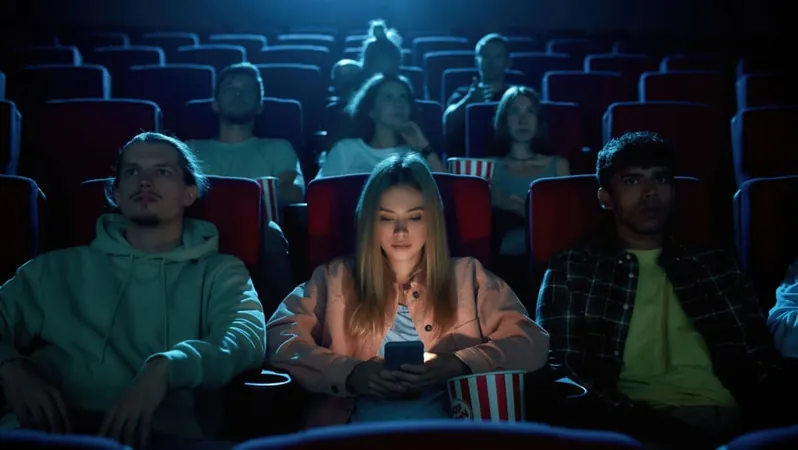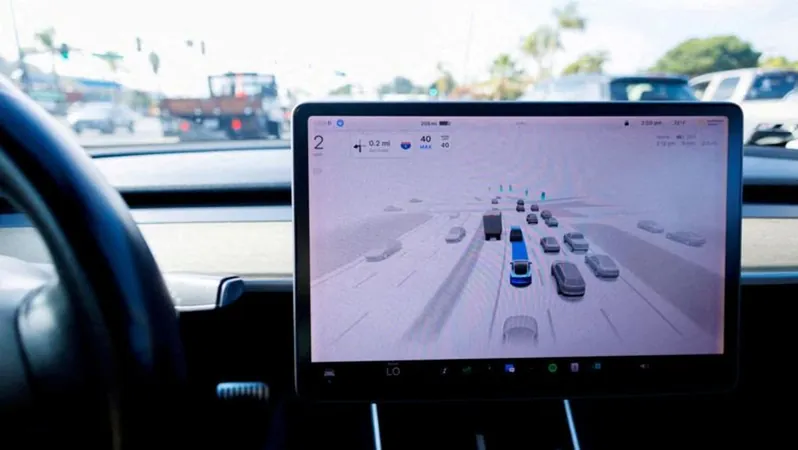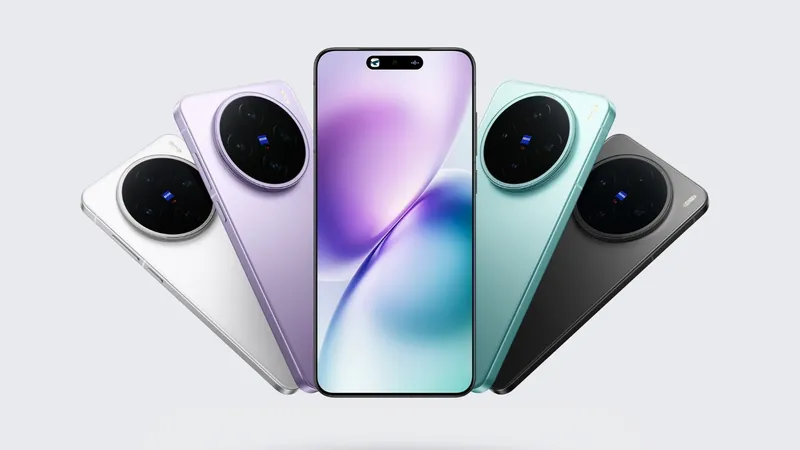
Why We Can't Stop Our Phones from Ruining Movie Nights
2025-04-12
Author: Yu
In March, I fell back into my Netflix addiction after a two-year hiatus. I had canceled my account due to the rise of bland programming—shows that felt like they were scripted by a robot with less depth than a typical office chat.
However, the hype surrounding the gritty British crime saga "Adolescence" lured me back. This four-part series, acclaimed for its raw performances and innovative one-take style, dives into the life of a 13-year-old accused of murdering a classmate.
Unlike other shows addressing the toxic effects of online misogyny on boys and men, I was engrossed. For the first time in a long while, I watched all four episodes in one go without any interruptions from my phone.
A Challenge for the Distracted Generation
An amusing Instagram challenge has emerged, daring viewers to watch a film without picking up their phones. The steps are simple but daunting: watch the entire film undistracted, refrain from checking your device, and then go straight to bed without Googling anything afterward.
Many users felt this request was too extreme, emphasizing the need to know everything about a movie post-viewing, highlighting our addiction to immediate information.
When I surveyed 36 friends, I found that only 13 could commit to this challenge, pointing to a worrying trend of distracted viewing.
The Decline of Deep Engagement in Entertainment
This phenomenon reflects our modern craving for constant stimulation, worsened by quick-hit social media formats like TikTok. Our brains are adapting to rapid content consumption, leading to shorter attention spans.
Interestingly, while our focus diminishes, streaming services like Netflix respond by creating shows that require little engagement, relying on familiar tropes and predictable story arcs.
The typical shallow plotlines and SEO-friendly titles illustrate a shift towards easy-to-consume content, often designed to blend into the background.
The Costs of Constant Stimulation
As our ability to fully engage with a show declines, the creative industry suffers. In a Reddit thread, viewers mentioned that immersion is crucial for enjoyment; distractions at home make it tough to appreciate a film.
Streaming platforms have adapted by producing content that is easy to consume without deep reflection, further eroding the quality we seek.
This decline isn't just limited to television—reading culture is suffering too. Once adept at finishing books, many of us now struggle to complete even one due to the lure of quick content.
A Deeper Cultural Loss
The paradox of accessibility means that while streaming services have opened doors for creators, they have flooded us with more content than we can consume thoughtfully. A focus on algorithm visibility jeopardizes storytelling, prioritizing instant gratification over enduring narratives.
As a result, the caricature of the digitally distracted viewer is merely the tip of the iceberg, representing a broader cultural loss in how we engage with stories. We're trading depth for convenience, and that depletion might be the most significant loss of all.
Ultimately, it begs the question: in our quest for instant entertainment, what are we really losing?





 Brasil (PT)
Brasil (PT)
 Canada (EN)
Canada (EN)
 Chile (ES)
Chile (ES)
 Česko (CS)
Česko (CS)
 대한민국 (KO)
대한민국 (KO)
 España (ES)
España (ES)
 France (FR)
France (FR)
 Hong Kong (EN)
Hong Kong (EN)
 Italia (IT)
Italia (IT)
 日本 (JA)
日本 (JA)
 Magyarország (HU)
Magyarország (HU)
 Norge (NO)
Norge (NO)
 Polska (PL)
Polska (PL)
 Schweiz (DE)
Schweiz (DE)
 Singapore (EN)
Singapore (EN)
 Sverige (SV)
Sverige (SV)
 Suomi (FI)
Suomi (FI)
 Türkiye (TR)
Türkiye (TR)
 الإمارات العربية المتحدة (AR)
الإمارات العربية المتحدة (AR)